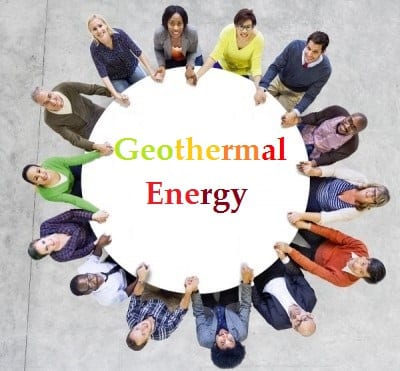Huge Geothermal Energy Initiative launched at COP21
December 14, 2015New Global Geothermal Alliance aims to dramatically boost global installed geothermal power generation by 2030.
Thirty-eight (38) countries and 20 development and industry partners have come together at the UN Climate Change Conference in Paris (COP21) to launch the Global Geothermal Alliance. This initiative, which is made possible by the International Renewable Energy Agency (IRENA), aims to reach a goal of 500% increase in worldwide installed capacity for geothermal energy generation and a 200% increase in geothermal heating by 2030, reported Renewable Energy Magazine.
While geothermal could be an ideal source of clean power for many nations it remains an underdeveloped renewable.
Many developing economies could benefit from geothermal power, providing these nations with a cleaner alternative to coal, oil and gas. Presently, the renewable source of energy is growing at a modest rate, increasing annually by 3 or 4%, providing 12 GW (gigawatts) of electricity each year. However, according to the industry, this is only a tiny amount of geothermal’s overall 100 GW potential. Currently, there are 90 countries with the potential to utilize geothermal as a resource, but only 24 out of the 90 countries actually do.
“While geothermal can provide baseload power at some of the lowest costs for any power source, it remains under-developed. The Global Geothermal Alliance will provide a platform for partners to share best practices, further reduce costs and get the most benefit out of this sustainable energy resource,” said Adnan Z. Amin, IRENA Director-General.
Although a proven clean technology, geothermal energy development is not without its challenges.
Once a geothermal project is up and running, it generates clean electricity at low cost and is more environmentally-friendly compared to fossil fuels.
However, while it is a proven technology, one of the primary reasons geothermal is so vastly underdeveloped, is the typical investment and development of this renewable power source requires surface geophysical studies and exploratory drilling to find geothermal hotspots, which carries high upfront costs.
The Alliance (which includes members from countries such as Iceland, France, Kenya, New Zealand, Malaysia, the Philippines, Guatemala, etc.), seeks to overcome these challenges by encouraging technological cooperation, mitigating risks, coordinating regional and national initiatives and facilitating geothermal power investments into energy markets. The alliance said that its objective is to overcome “political uncertainty” regarding geothermal energy and strengthen the skill base of the industry.

 With over 15 years of reporting hydrogen news, we are your premier source for the latest updates and insights in hydrogen and renewable energy.
With over 15 years of reporting hydrogen news, we are your premier source for the latest updates and insights in hydrogen and renewable energy.